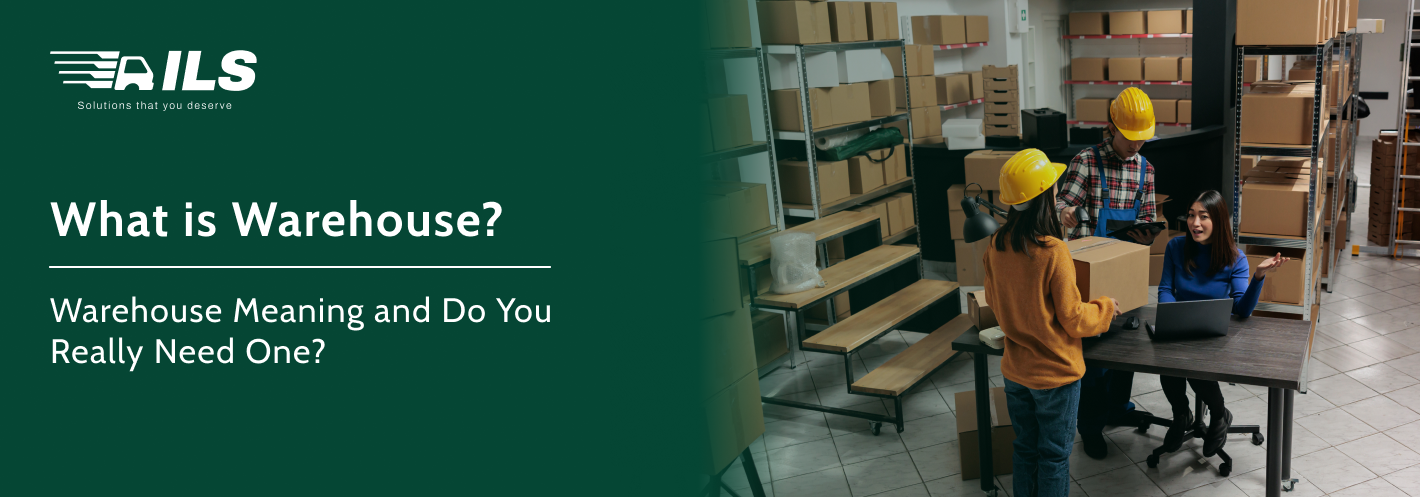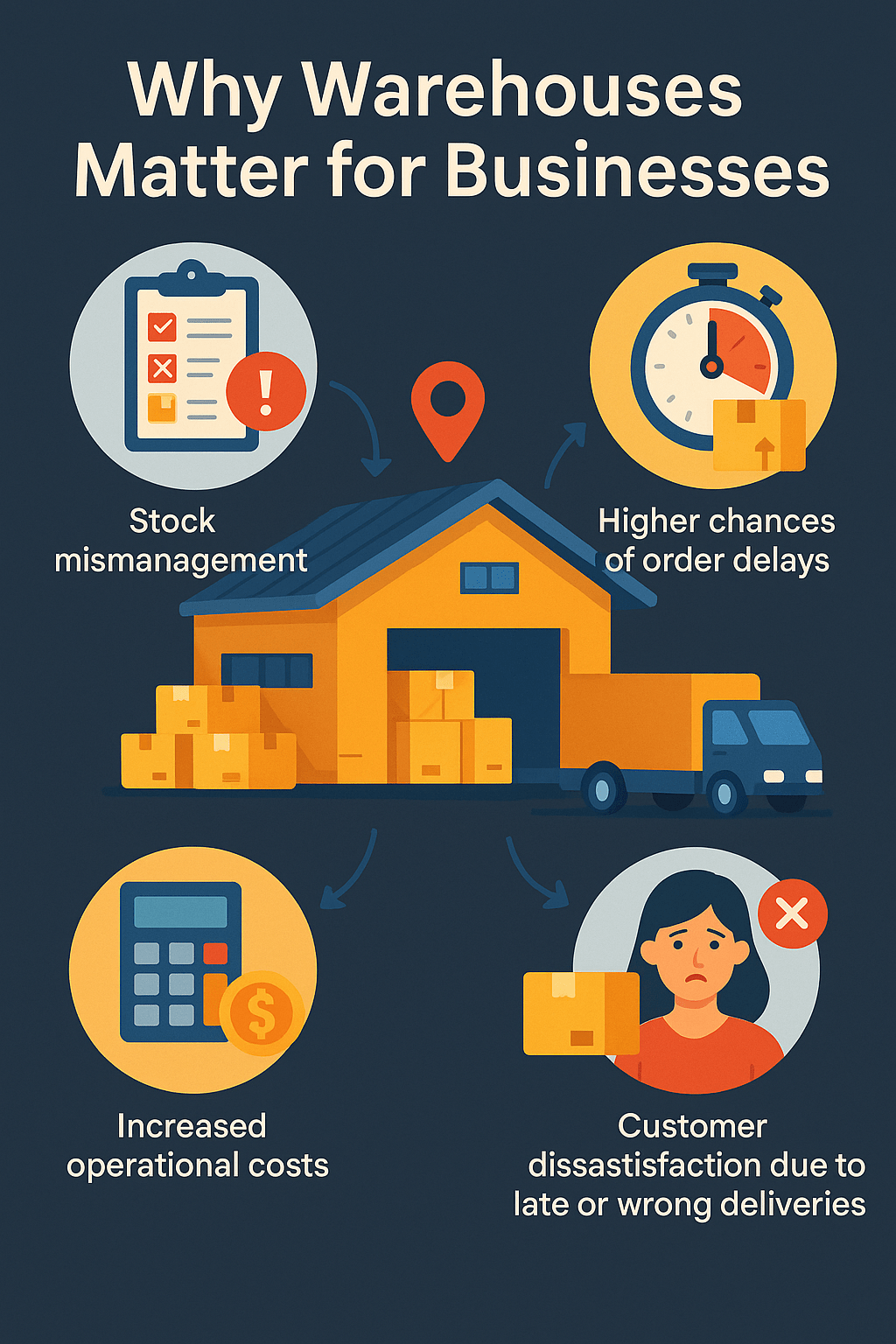What is Warehouse? Warehouse Meaning and Do You Really Need One?
Warehouse Management
Running a business means handling products, stock, and timely delivery. For many companies, especially in ecommerce, a warehouse is the backbone of smooth operations. But before you decide if you need one, it helps to understand what is warehouse, its meaning, and how it can solve common business problems.
Also Read: https://ilsportal.io/blogs/distributor-and-consumer-management-system
Warehouse Meaning and Definition
A warehouse is a building or facility used to store goods before they are sold, distributed, or delivered. Businesses use warehouses to keep inventory safe, organized, and ready for dispatch.
Warehouse definition in simple terms, it is a storage place that supports bulk stocking, order fulfillment, and distribution.
When people search online, they often want to know the warehouse's meaning in different languages. The core meaning remains the same across languages, a secure storage space for goods that supports business supply chains.
What Do You Mean by Warehousing
Warehousing refers to the entire process of storing goods in a warehouse. This includes receiving stock from suppliers, categorizing and labelling products, managing shelf life, tracking inventory, and shipping orders to customers.
For ecommerce owners, warehousing means less stress about stockouts, faster deliveries, and more organized logistics.
Why Warehouses Matter for Businesses
Ecommerce sellers and traditional retailers both face similar challenges. Without a proper warehouse, businesses may deal with:

- Stock mismanagement
- Higher chances of order delays
- Increased operational costs
- Customer dissatisfaction due to late or wrong deliveries
A warehouse solves these problems by providing centralized control over stock and dispatch.
Warehouse Uses in Ecommerce
Warehouses are not just about storage. Their role in ecommerce goes far beyond:
| Use Case | Benefit for Business Owners |
|---|---|
| Inventory storage | Keeps products safe and accessible |
| Order processing | Faster picking, packing, and shipping |
| Demand forecasting | Helps track sales trends and prepare stock |
| Returns management | Makes product exchanges and returns easier |
| Multi-location delivery | Supports faster delivery with regional hubs |
This is why ecommerce platforms and courier partners work closely with warehouse facilities.
Warehouse Management System
A warehouse management system (WMS) is software that helps businesses manage daily warehouse operations. It covers inventory tracking, stock levels, order processing, barcode scanning, and shipping updates.
Using a WMS reduces errors, improves accuracy, and saves time for business owners who want control over their supply chain.
Courier Partners and Warehouse Networks
Well-known courier partners like Blue Dart, Delhivery, DTDC, FedEx, and Ecom Express depend on warehouse setups to provide faster deliveries. Their networks use regional warehouses to move products quickly from sellers to customers.
For small and medium ecommerce sellers, connecting with such partners through an integrated warehouse setup can help compete with bigger brands.
Multiple Warehouse Management with ILS Portal
For businesses that handle large volumes, managing multiple warehouses is often necessary. The ILS Portal allows you to set up multiple shipping warehouse addresses. With this, you can assign a warehouse location for each order and ship from the nearest hub.
This setup saves time, lowers shipping costs, and improves customer experience. It is especially useful for ecommerce sellers managing nationwide deliveries.
Do You Really Need a Warehouse
Not every business needs a full-scale warehouse from day one. However, a warehouse might be the solution if you face issues like inconsistent deliveries, high return rates, or messy inventory records.
You might need a warehouse if:
- You sell online and ship to multiple regions
- You struggle with stockouts or overstock
- You want to offer same-day or next-day delivery
- Your product range is expanding
- You work with multiple courier partners
Small businesses can start with shared warehouse facilities or fulfillment centers, then scale to dedicated warehouses as the business grows.
Local and Global Understanding of Warehouse
Since many people search for the meaning of warehouse in local languages, here are some common searches warehouse meaning in Hindi, warehouse meaning in Tamil, warehouse meaning in Malayalam, warehouse meaning in Telugu, etc. No matter the language, the purpose of a warehouse remains the same, safe and efficient storage to support trade and commerce.
Final Thoughts
So, what is warehouse, and do you need one? A warehouse is more than storage. It is an organized system that helps ecommerce and retail businesses scale. From storing goods to managing orders, from working with courier partners to offering faster delivery, warehouses support growth and customer trust.
If your business is growing and customer expectations are rising, investing in a warehouse or using a WMS with solutions like the ILS Portal for multiple warehouse setups can be the step that brings order, efficiency, and scalability to your operations.
Frequently Asked Questions
Q1. What is Warehouse?
A warehouse is a storage place where businesses keep their goods before selling or shipping them. It helps in storing, managing, and dispatching products.
Q2. What is Warehouse definition?
A warehouse is a building or facility designed to store goods, manage stock, and support distribution.
Q3. Do small businesses need a Warehouse?
Not always. Small businesses can start with shared fulfillment centers or third-party logistics providers. As sales grow, a dedicated warehouse may become necessary.
Q4. What is the use of multiple Warehouses?
Multiple warehouses reduce delivery time and shipping costs by allowing orders to be shipped from the location nearest to the customer. Platforms like the ILS Portal make this easy.
Q5. What is Warehouse meaning in Hindi or other languages?
People often search for the meaning of Warehouse in Hindi, Tamil, Malayalam, Telugu, Bengali, Kannada, Marathi, and Punjabi. In all languages, the meaning is the same, a place where goods are stored before distribution.

